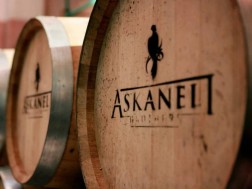One of the main obstacles behind low wine exports on the wealthier export markets are high costs associated with marketing and product shelving and companies’ fear of investment failure, - according to Galt & Taggart.
As the report reads, despite some success, Georgia still accounts for less than 1% of total wine imports in new target markets (excluding Poland, where Georgia holds 3%). Premium Georgian wines should mostly be targeted to wealthier export markets like the US and UK, mass-produced wines to China and both types to Germany.
Galt & Taggart notes, that mass-produced wines like Saperavi, Alazani Valley, Kindzmarauli could be targeted to China, considering the lowest per capita wine consumption and evolving drinking preferences in this market. Besides, considering the maturity of German wine drinkers and the fact that women are more frequent wine drinkers who favor semi-sweet/sweet wines, both premium as well as mass-produced Georgian wines would be highly welcome in Germany.
Last week, new state subsidy program was announced by the Government of Georgia. The program aims to diversify wine exports, which is basically concentrated in Russia and CIS countries. According to the Ministry of Environmental Protection and Agriculture of Georgia, Georgian wine companies can attract over 600,000 GEL for the marketing campaign except for Russia and CIS countries.
However, the companies must meet the following criteria to receive marketing funding from the state:
"Under the program, beneficiaries will be reimbursed for marketing expenses (except for Georgia and the CIS countries) in the following conditions:
A) If the beneficiary will export more wine (liters) in the current calendar year compared to the previous calendar year;
B) If the beneficiary will incur more marketing expenses during the current reporting period compared to the previous reporting period.
The maximum amount of remuneration to be paid to each beneficiary during the calendar year is set at no more than 600,000 (six hundred thousand) GEL," the published decree on the Legislative Herald reads.
“Our expectations on exports are positive, supported by growing investments in vineyards, government support for the sector, healthy demand from export markets and free trade agreements with EU and China. We also anticipate the average export price to increase, along with gradual transition towards new export markets in the medium term. Considering this, we expect wine exports to almost double in next 5 years to US$ 350mn in 2025”, - Galt & Taggart notes.
Giorgi Aladashvili, head of Ruispiri Biodynamic Vineyard declares, that the state subsidy will not be accessible for his company.
“Small companies like us cannot benefit from state subsidy program, we cannot meet the criteria announced by the government neither now nor for the near future”, said Giorgi Aladashvili.
Schuchmann Group welcomes state subsidy. Roland Burdiashvili, the head of the Porduction at Schuchmann Wines, declares that the company will apply for the program.
“The government and National Wine Agency of Georgia always helped us, especially amid the pandemic, as they sent wine samples in European countries. Schuchmann Wines is going to take part in the state subsidy program, we do not have definite plan yet how we will spend the subsidy, but we want to buy marketing bases in some European countries”, - said Roland Burdiashvili.
















